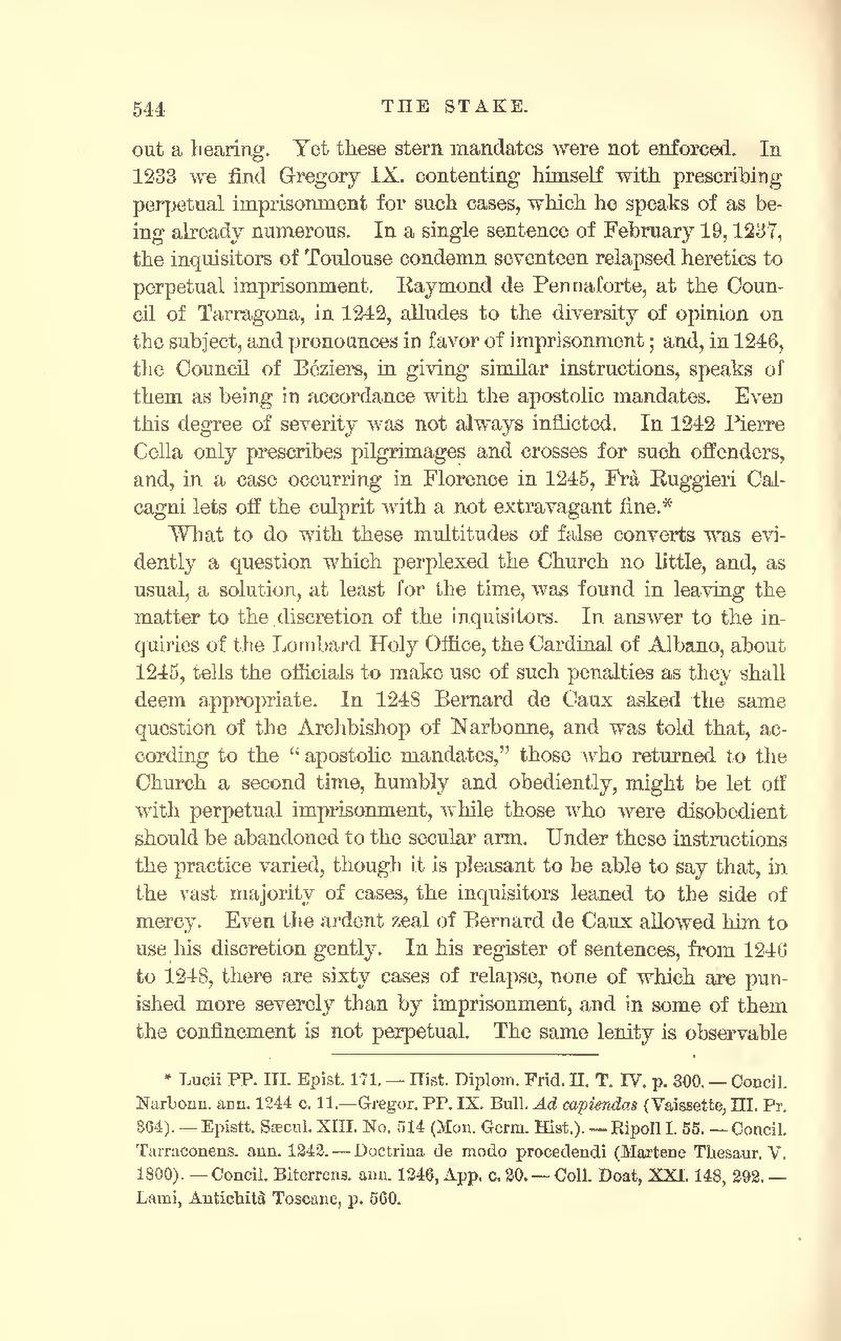out a hearing. Yet these stern mandates were not enforced. In 1233 we find Gregory IX. contenting himself with prescribing perpetual imprisonment for such cases, which he speaks of as being already numerous. In a single sentence of February 19, 1237, the inquisition of Toulouse condemn seventeen relapsed heretics to perpetual imprisonment. Raymond de Pennaforte, at the Council of Tarragona, in 1242, alludes to the diversity of opinion on the subject, and pronounces in favor of imprisonment; and, in 1246, the Council of Béziers, in giving similar isntrucions, speaks of them as being in accordance with the apostolic mandates. Even this degree of severity was not always inflicted. In 1242 Pierre Cella only prescribes pilgrimages and crosses for such offenders, and, in a case occuring in Florence in 1245, Frà Ruggieri Calcagni lets off the culprit with a not extravagant fine.[1]
What to do with these multitudes of false converts was evidently a question which perplexed the Church no little, and, as usual, a solution, at least for the time, was found in leaving the matter to the discretion of the inquisitors. In answer to the inquiries of the Lombard Holy Office, the Cardinal of Albano, about 1245, tells the officials to make use of such penalties as they shall deem appropriate. In 1248 Bernard de Caux asked the same question to the Archbishop of Narbonne, and was told that, according to the "apostolic mandates," those who returned to the Church a second time, humbly and obediently, might be let off with perpetual imprisonment, while those who were disobedient should be abandoned to the secular arm. Under these instrucions the practice varied, though it is pleasant to be able to say that, in the vast majority of cases, the inquisitors leaned to the side of mercy. Even the ardent zeal of Bernard de Caux allowed him to use his discretion gently. In his register of sentences, from 1246 to 1248, there are sixty cases of relapse, none of which are punished more severely than by imprisonment, and in some of them the confinement is not perpetual. The same lenity is observable
- ↑ Lucii PP. III. Epist. 171. Ilist. Diplom. Frid. II. T. IV. p. 300. Concil. Narboun. ann. 1244 c. 11.-Gregor. PP. IX. Bull. Ad capiendas (Vaissette, III. Pr. SG4). Epistt. Secul. XIII. No. 514 (Mon. Germ. Hist.).Ripoll I. 55.Concil Tarraconens. ann. 1242.-Doctriua de modo procedendi (Martene Thesaur, V 1800).Concil. Biterrens. ann. 1246, App. c. 20.Coll. Doat, XXI. 148, 292.-Lami, Antichita Toscane, p. 560
